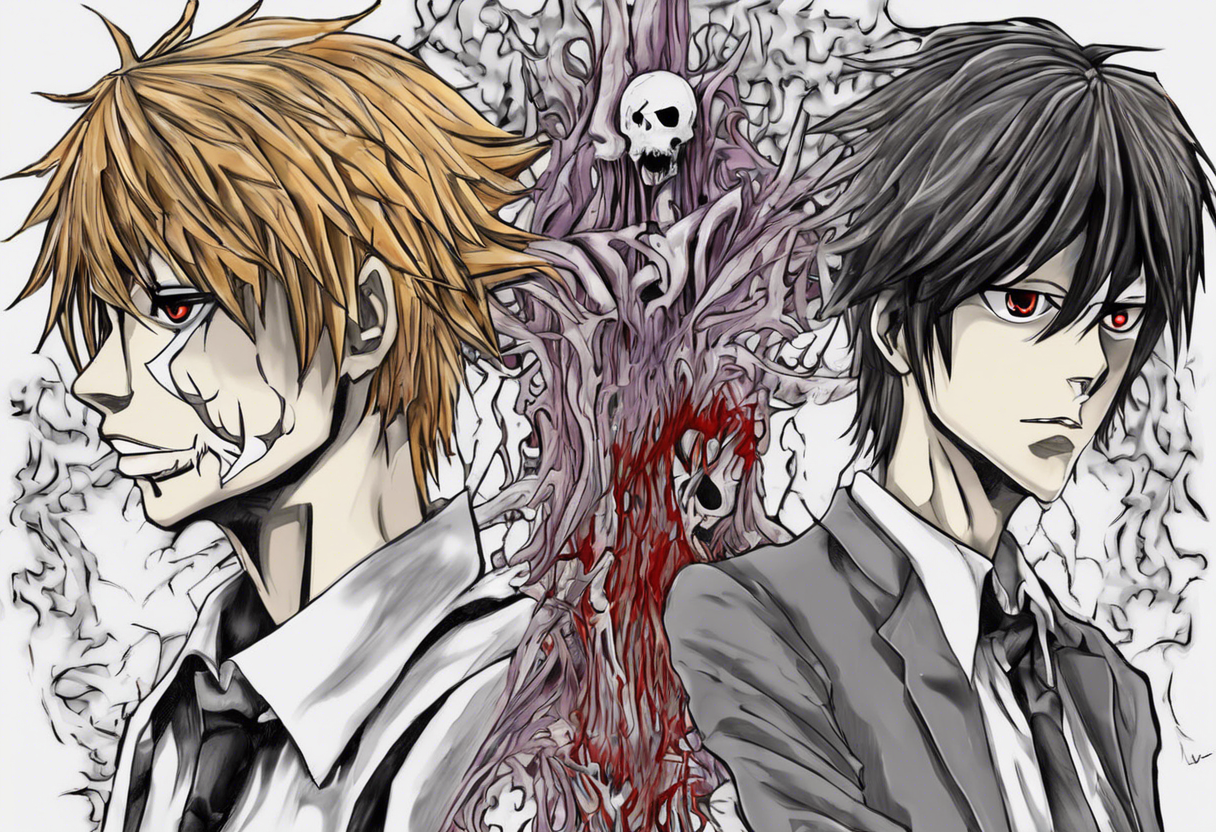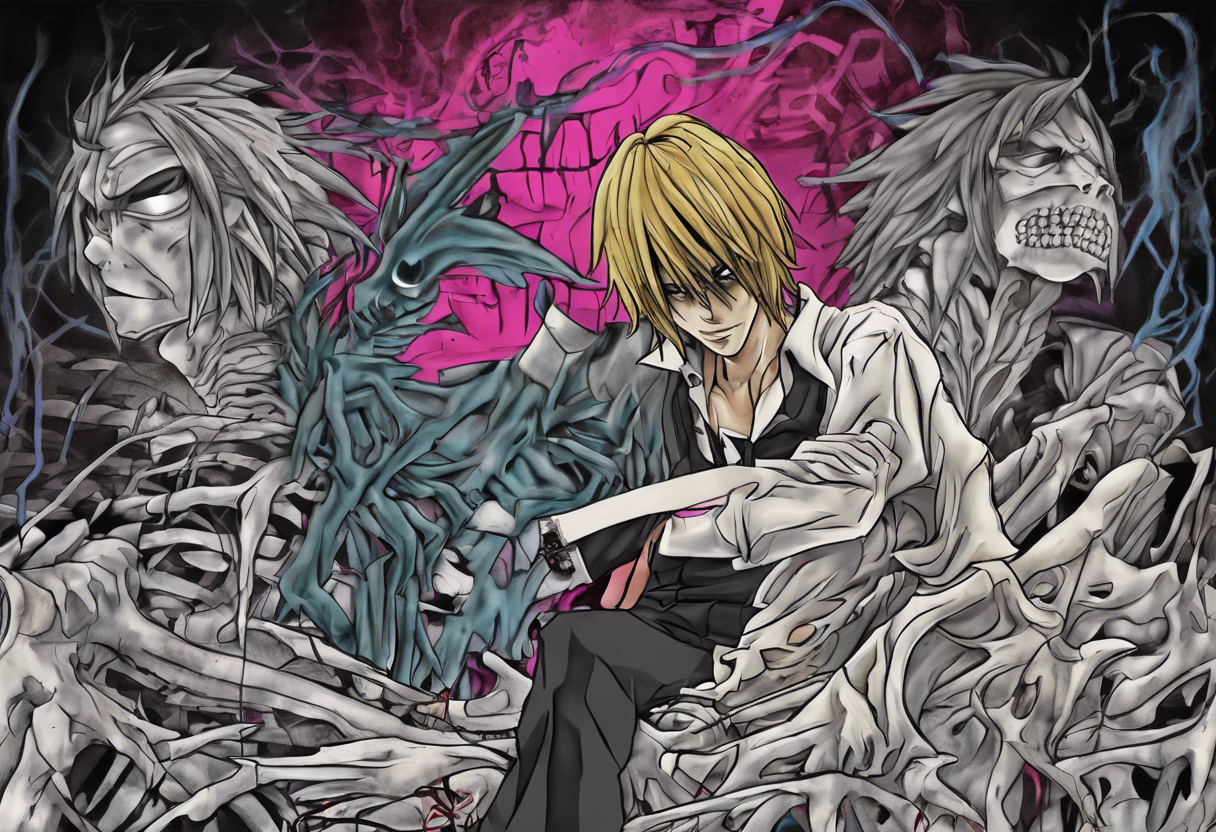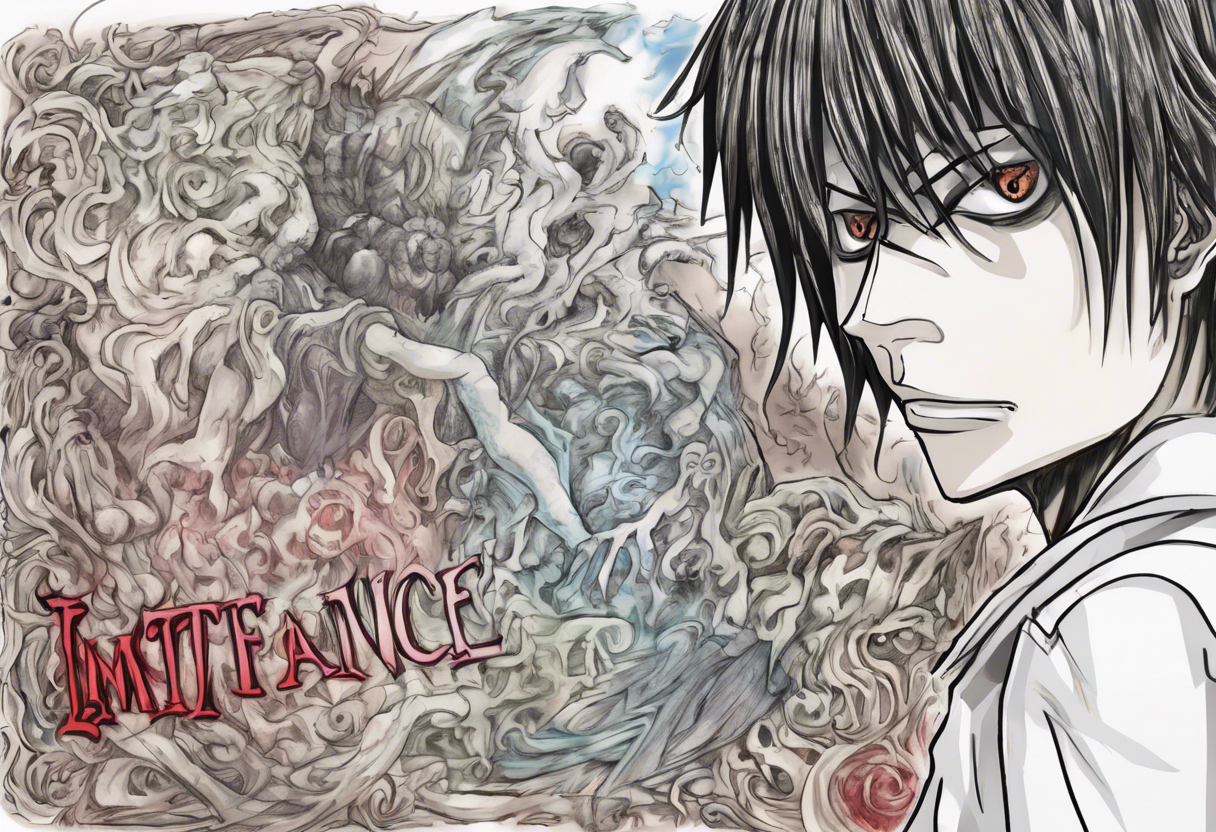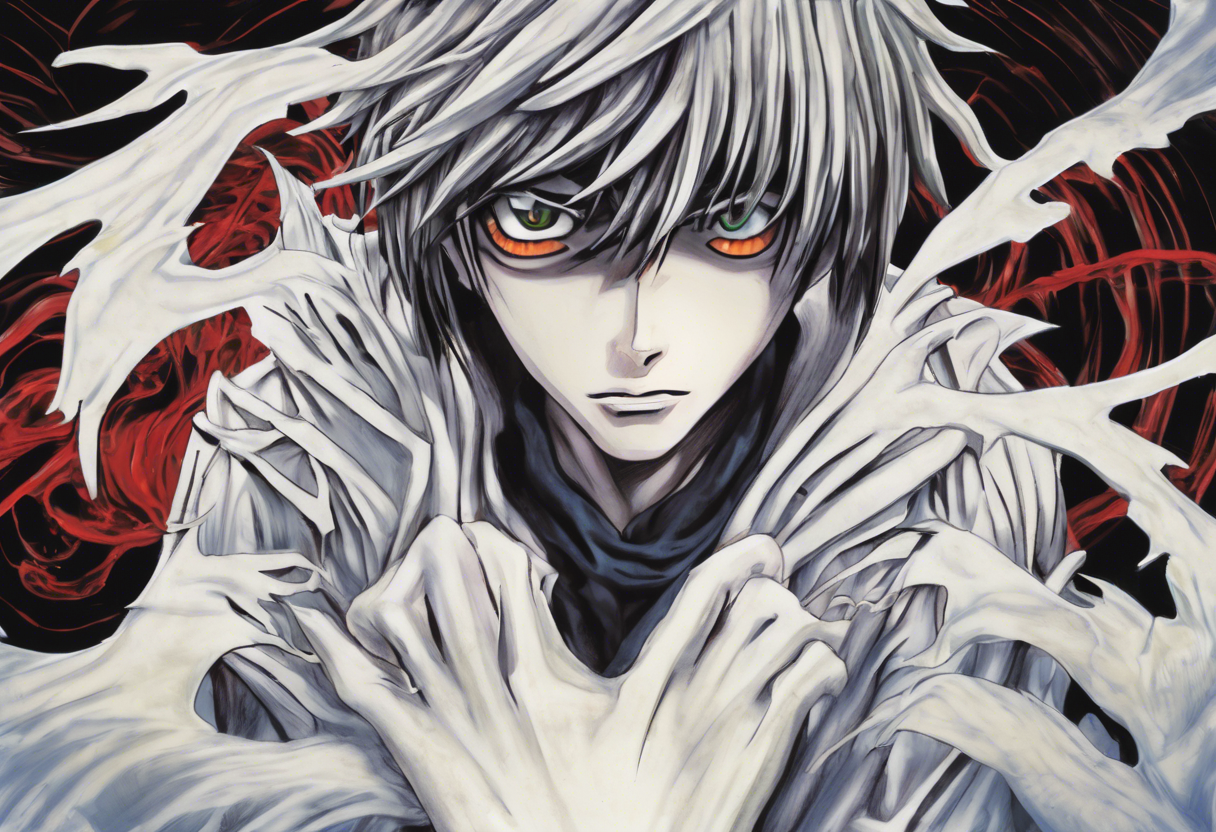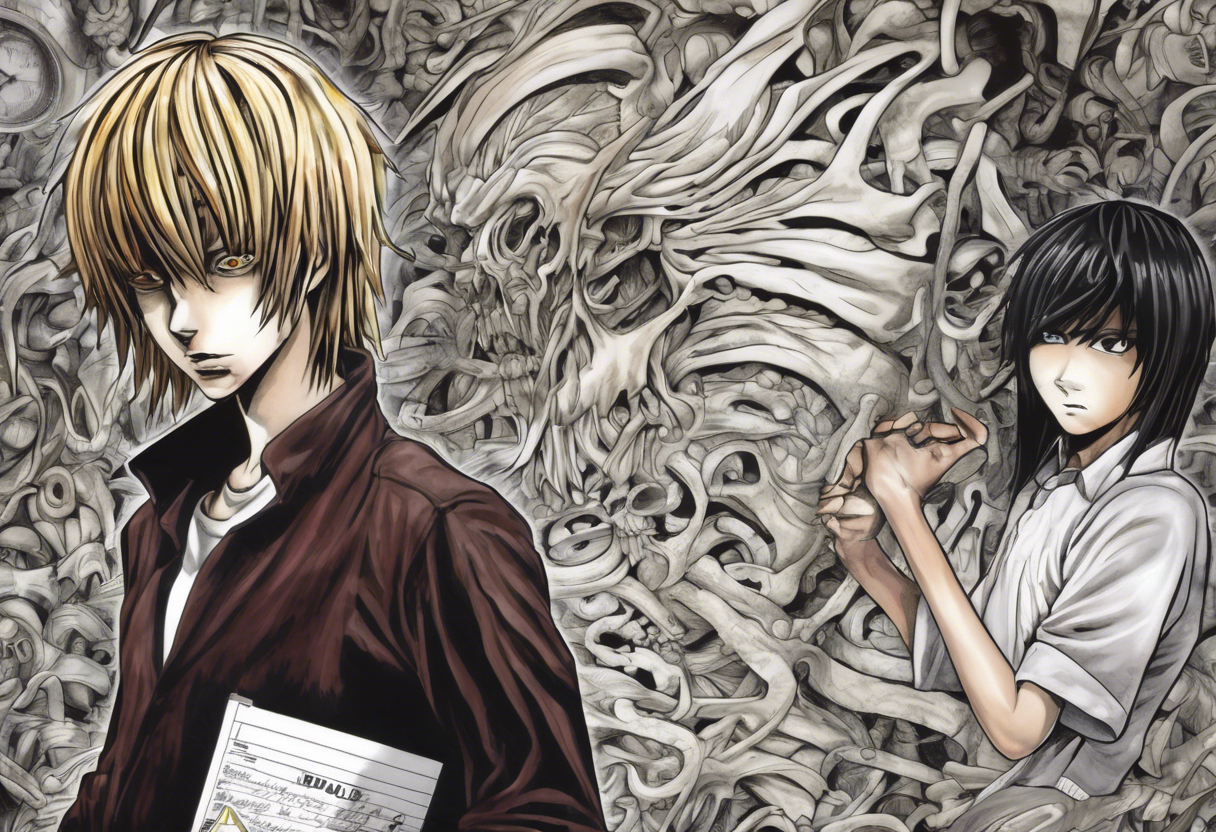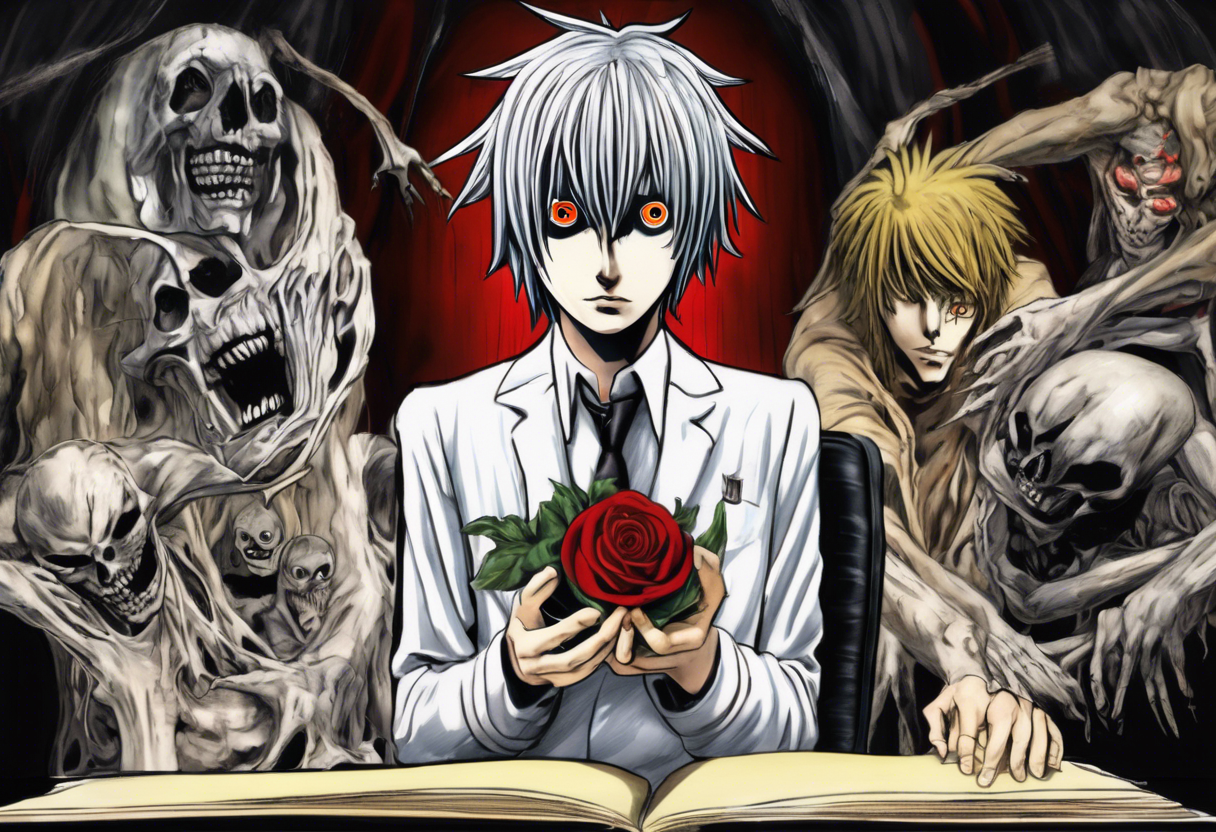Contents
Death Note: Episode 28 – "Impatience"
Introduction
"Impatience" is the 28th episode of the anime series Death Note, a psychological thriller based on the manga of the same name by Tsugumi Ohba and illustrated by Takeshi Obata. The episode is part of the first season, which was directed by Tetsurō Araki and animated by Madhouse. The series premiered on Nippon TV on October 4, 2006, and concluded on June 27, 2007, with a total of 37 episodes.
The production of Death Note involved a meticulous process, with Ohba focusing on the tempo and dialogue to maintain suspense, while Obata had significant artistic license to interpret the basic descriptions and create the final artwork [2].
"Impatience" stands out within the series for its intense plot twists and the escalating conflict between the main characters. The episode was written by Toshiki Inoue, who played a crucial role in adapting the manga’s complex plot into the anime format, ensuring that the details were clarified for the audience [2].
Plot Summary
In "Impatience," the storyline revolves around the kidnapping of Sayu Yagami, Light Yagami’s sister, by a group seeking the Death Note. This event triggers a series of complex maneuvers and counter-manoeuvres between Light, acting as L, and the investigative team led by Near.
The episode begins with the revelation that Sayu has been kidnapped, and Light, in his role as L, must navigate this crisis while keeping his true identity hidden. The kidnappers demand that Light hand over the Death Note in exchange for Sayu’s safe return. Meanwhile, Near and his team are working to uncover the identity of Kira (Light Yagami) and to retrieve the Death Note.
Mello, another key character, is introduced as a rival to Near in the pursuit of Kira. Mello’s actions become increasingly erratic and violent, leading to a dramatic confrontation that involves the use of the Death Note and a missile attack on a helicopter [1].
The episode is marked by high tension and strategic gameplay between the characters, highlighting the themes of power, morality, and the consequences of impatience. The plot is intricate, with multiple layers of deception and counter-deception, keeping the audience engaged and guessing until the very end.
Themes and Symbolism
"Impatience" delves into several central themes that are pivotal to the Death Note series. One of the primary themes is the exploration of morality and justice. Light Yagami’s character embodies the question of whether the end justifies the means, as he believes that killing criminals without trial is necessary to create a just society. However, this theme is complicated by the actions of characters like Mello, who are willing to go to extreme lengths to achieve their goals, highlighting the dangers of impatience and the pursuit of power at any cost.
Another significant theme is the psychological impact of power and the pressure of maintaining a facade. Light’s dual identity as a high school student and the serial killer Kira creates immense psychological strain, which is exacerbated by the kidnapping of his sister. This internal conflict is a recurring motif throughout the series, emphasizing the psychological toll of living a double life [1].
Symbolism also plays a crucial role in "Impatience." The Death Note itself is a symbol of ultimate power and the ability to control life and death. The Shinigami, Ryuk, who dropped the Death Note into the human world, represents the capricious nature of fate and the consequences of meddling with forces beyond human control.
Cultural Impact
"Impatience" and the broader Death Note series have had a significant cultural impact since their release. The series was one of the first well-known Japanese anime properties to be made legally available in the United States for download while it was still airing in Japan, marking a significant milestone in the distribution of anime globally [2].
The series has influenced popular culture, with references in various other media, including TV shows, movies, and music. The concept of the Death Note has become a cultural icon, symbolizing the ultimate power and the moral dilemmas associated with it.
Critical Reception
The critical reception of "Impatience" and the Death Note series has been overwhelmingly positive. Critics have praised the series for its intricate plot, well-developed characters, and the philosophical themes it explores. The episode’s direction by Tetsurō Araki and the writing by Toshiki Inoue have been particularly commended for maintaining the suspense and clarity necessary for such a complex narrative.
Audiences have also responded favorably, appreciating the series’ ability to balance intellectual depth with engaging storytelling. However, some critics have noted the series’ dark and sometimes disturbing themes, which can be off-putting for some viewers.
Legacy
"Impatience" and the Death Note series continue to have an enduring legacy in the world of anime and beyond. The series has inspired numerous adaptations, including live-action films, stage plays, and video games. It has also influenced other creators in the anime and manga industries, with many citing Death Note as an inspiration for their own work.
The series’ exploration of complex themes such as morality, power, and the human condition continues to resonate with audiences. It remains a staple in the psychological thriller genre, and its influence can be seen in many subsequent anime and manga series.
The episode "Impatience" specifically is remembered for its intense plot twists and the dramatic escalation of the conflict between the characters, making it a pivotal moment in the series that sets the stage for the final confrontations.

